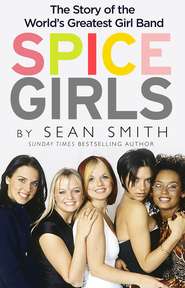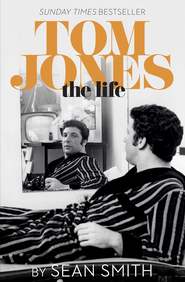По всем вопросам обращайтесь на: info@litportal.ru
(©) 2003-2024.
✖
Adele
Настройки чтения
Размер шрифта
Высота строк
Поля
‘Fire to the Rain’ closes the main set, with Adele, thanks to special effects, caught in a downpour without an umbrella. In the old pre-mobile days, we would all have got our lighters out and let them flicker away while she sang. Struggling to light a cigarette is supposed to have given her the inspiration for the number.
The encore begins with her popping up on the small stage again. Unseen, she is carted by roadies between the two stages in a sort of wheelie bin. She starts with ‘All I Ask’, my favourite track on 25 and certainly the saddest. Fortunately, there is no sign of the sound issues that marred her performance of the song at the 2016 Grammys. It’s a breathtakingly difficult song to sing and, for me, the best of the night.
Before she sends us home happy with ‘Rolling in the Deep’, she sings another great ballad off the latest album. ‘When We Were Young’ is accompanied on the big screen by a selection of sweet, nostalgic photographs of Adele as a child – a toothless grin, a shot with her mother on the beach in South Wales.
It’s a rare glimpse of the girl who grew up to be the biggest star in the world. The pictures are just snapshots, but what was she really like, both then as a child and now as a mum?
Part One
1
A Surprise Announcement (#u69dbb1fd-ad65-5818-9da6-528946a7b08f)
The live video for Adele’s 2016 single ‘When We Were Young’ is a relaxed and informal affair. She is dressed in a chic black outfit and sings the nostalgic power ballad perfectly in front of her band at The Church Studios, a state-of-the-art complex in an old Victorian church in fashionable Crouch End, North London. One hundred yards away stands The King’s Head pub, a popular local boozer where, coincidentally, the Adele Adkins story begins.
These days the studios are owned by the acclaimed producer and long-time Adele collaborator Paul Epworth, with whom she co-wrote two of her best-loved songs, ‘Rolling in the Deep’ and ‘Skyfall’. Back in the 1980s, however, the studios were put on the music map of London by Annie Lennox and Dave Stewart. As Eurythmics, they recorded their debut album, Sweet Dreams, on the top floor. They went on to become one of the most successful acts of the decade, eventually buying the building and playing host to many top names, including Bob Dylan, Depeche Mode and Elvis Costello.
Down the street, on the corner of Crouch Hill, The King’s Head, which was also founded in Victorian times, became a popular and trendy bar for a young crowd keen to rub shoulders with musicians or perhaps catch a glimpse of someone famous nursing a drink in the corner. Downstairs was one of those tight, atmospheric rooms for comedy nights or for up-and-coming bands. If you were lucky, back in the day, you might have caught Dave and Annie jamming. You can imagine that Adele might have played there if she had been starting out then.
It was just the sort of place to attract an eighteen-year-old art student called Penny Adkins. She had travelled there on the bus from her parents’ house in Tottenham for a night out with friends one summer night in 1987.
Penny was tall, slender, raven-haired and stood out from the crowd. She caught the eye of most of the young men in the upstairs bar, including a broad-shouldered, handsome blond window-cleaner called Marc Evans, who had moved to London from South Wales and was carving out a good living with his round in the upwardly mobile neighbourhood.
It wasn’t love at first sight, but there was definitely some lust in the air as Marc sauntered over confidently for some light conversation and Penny’s phone number. Marc, who was twenty-five, had all the chat as a young man and enjoyed a very high success rate charming young ladies during the year he had been in London.
He and his younger brother Richard had been brought up in the popular Welsh resort of Penarth, nowadays more a Cardiff suburb than the popular seaside town it was then. Their father, John, had spotted the need for a self-employed plumber and soon was so successful he was able to buy his family a five-bedroom Victorian townhouse. ‘My parents always owned their own house through good old-fashioned graft,’ observes Marc proudly.
Marc’s mother, Rose, was a devout Christian and for many years has been a respected member of the Tabernacle Baptist Church choir. Marc was a choirboy as a youngster – ‘an Aled Jones-type until the old schmoogers dropped’. He sang at All Saints, Penarth, in Victoria Square, a ten-minute walk away. As a teenager, he harboured ambitions to sing and act and even wrote off to drama schools, but, in the end, went to a technical college in Llandaff for formal training as a plumber before joining his father’s business. Richard, meanwhile, chose a career in the police force.
Marc was enjoying the life of a Penarth playboy with a sky-blue MG roadster and a gorgeous girlfriend. When that romance went sour, his best friend, Nigel, who was studying for a degree in London, invited him to stay. Nigel’s parents were quite well off, so he wasn’t living in halls of residence but had his own place.
The two-bedroom flat in Turnpike Lane was conveniently situated a couple of miles from Crouch End in one direction and Tottenham in the other. Marc soon found work as a shop-floor manager in the Edmonton branch of Wickes, the home-improvement chain.
One day an elderly man came in and asked him for some ‘scrim’, the durable cloth used to polish windows. They got talking and the man told Marc he was earning a ‘fucking fortune’ cleaning the windows of yuppie house owners. The conversation gave Marc the germ of an idea and a few days later, on a pleasant summer evening, dressed smartly in a shirt and tie, ladder on his shoulder, he was knocking on the doors of suitable houses in Crouch End and nearby Highgate. ‘Good evening, sir. Good evening, madam, would you like your windows cleaned?’
It was £10 or £15 for twenty-minutes’ work cleaning the windows of a two-up, two-down property. By the time he met Penny later that summer, he was well on his way to earning £20,000 a year, which was a tidy sum for a young man in the 1980s.
Penny was a North London girl, not originally from Tottenham at all, but from Islington, and lived in Chalfont Road, a mile from the old Highbury football ground that closed in 2006. Her large family were, unsurprisingly, big Arsenal supporters, even though her mother and father, Doreen and John, eventually moved into a council house on the Tower Gardens Estate, off the busy Lordship Lane in Tottenham.
John Adkins was earning his living as a lorry driver when Penny, the youngest of five children, was born, but by the time their daughter was at senior school, he and his wife were working on a fruit and vegetable stall at the New Covent Garden Market in Nine Elms.
Penny was an artistic girl who showed an early talent for drawing and painting. She was never happier than when sketching in her bedroom or playing her trusty acoustic guitar. She was determined to use her gifts by studying art at university and, as many students do, she enrolled in a one-year foundation diploma in art and design at a college in Barnet.
While Penny’s family were very much working-class North Londoners, she didn’t have the rough edges. Marc explained, ‘Penny doesn’t have that sort of cockney twang. She could walk into a pub anywhere and you wouldn’t know she was from London. It’s not so much that she is posher – she is more reserved.’
Even though he had a girlfriend at the time, Marc sensed there was real chemistry between himself and the teenager. ‘She was a very, very attractive girl. She had lovely long dark hair, legs up to her neck and, what can I say, Bob’s your uncle.’
He wasted no time in ringing her to arrange a date a few days later at his favourite pub, the Punch and Judy in Covent Garden. Although it was a chance to get to know one another properly, Marc quickly realised that she wasn’t the sort of girl to jump into bed on the first date. ‘She wasn’t like that,’ he recalled.
‘It was not a big love story,’ he added. However, they continued to meet at the pub, which became ‘their’ place. Over the next few weeks, things between them got more serious and Penny agreed to stay the night at the flat in Turnpike Lane.
About two months after they met, they were passing the time at the Punch and Judy, when Penny suddenly blurted out, ‘Marc, I’m pregnant.’ He was shell-shocked at the news, but put on a brave face for his eighteen-year-old girlfriend: ‘All right, babe. No worries. We’ll sort it out.’
Despite her young age, Penny was to prove hugely resilient. There was never any question, or even discussion, about the possibility of her not keeping the child. The most pressing concern was telling Penny’s parents, who, at this point, hadn’t even met their daughter’s new boyfriend.
Despite his bravado, Marc had been brought up traditionally and insisted that he would be there when she broke the news. Penny arranged for him to join them for a Sunday lunch. ‘I told myself to “man up”, and so I went along and explained to them that I was the father. They were shocked, obviously, and asked me what I intended to do. I told them I didn’t know.’
A week later, he had made up his mind. Back at the pub, he asked Penny what she was doing for the next thirty years. ‘Do you fancy getting hitched?’ Despite being eighteen and pregnant, she said no, telling him they were too young. It was an early indication of her strength of character. Marc observed simply, ‘She was a very tenacious young girl, a very strong woman. If she’d wanted to marry me, she would have said, “Right, you’ve asked me, now let’s do it.” It wasn’t in the stratosphere, you know. She wasn’t even thinking about it. She probably saw me as a bit of a Jack the Lad and thought that this wasn’t going to work out.’
Marc still had the job of telling his own parents that they would be grandparents for the first time. He took the train back to Penarth and told them he had met a girl called Penny, who was now pregnant. His father John, a strong-minded, masculine man, wasn’t a touchy-feely chap, but took it well enough.
During the next nine months, Marc and, particularly, Penny had some important decisions to make. He moved into a shared house in Crouch End, nearer his round, when his pal Nigel got a job as a surveyor with Tower Hamlets and moved to Chingford in North East London. Penny, meanwhile, decided to give up her college course and become a full-time mum. Fiercely independent, she left home and moved into emergency accommodation for unmarried mothers on Queen’s Drive, an unappealing street near Finsbury Park Station. She also received support from the National Childbirth Trust (NCT) charity.
Marc saw her regularly, but it would be stretching it to suggest they were a devoted couple. He wasn’t the sort of man to hold her hand while she practised her breathing at antenatal classes.
Two weeks before the baby was due, he was eating breakfast at home in Crouch End when the phone rang. It was Penny’s mum Doreen. ‘Congratulations, Marc. You are the father of a baby girl.’ Despite being premature, there were no complications and the baby weighed a healthy 5lb 10½oz.
Marc dashed to the florists, bought an extravagant bunch of flowers and hopped on a bus to the North Middlesex Hospital in Edmonton, just off the North Circular Road, to see his daughter for the first time. It was 5 May 1988.
The new parents needed to decide on a name for their baby. Marc suggested Blue, his favourite colour. It was nothing to do with enjoying blues music; he just really liked the name. Penny considered that for a second or two before replying firmly, ‘I’m not calling her Blue.’
She had, in fact, already made up her mind that her daughter would be called Adele. It was an unusual choice, which perhaps was the point. In literature, Adele features in the classic novel Jane Eyre as Rochester’s young French ward. Jane takes the girl under her wing when she is employed as her governess. An art student might know that the Countess Adele was the mother of the Post-Impressionist master Toulouse-Lautrec.
For her second name, Penny chose Laurie, something suitable for either a boy or a girl. As a sop to Marc, she agreed that her third name could be Blue. He was delighted. Penny didn’t appreciate it, however, when Marc started calling his daughter Blue. She would snap, ‘Don’t call her that. Her name’s Adele.’ Penny never shortened it to Addie or Della. It was unusual in both their families for someone to have three first names. Adele Laurie Blue was certainly something to remember.
Fortunately, Penny, who had been kept in hospital for only a day, didn’t have to stay long in Queen’s Drive either. She was rehoused in a two-bedroom council flat in Shelbourne Road, Tottenham. If the wind was blowing in the right direction, she could hear the Saturday roar from the crowd at White Hart Lane. The famous Spurs ground was less than a mile away down the ironically named Park Lane, which bears no resemblance to the famous West End thoroughfare that is a byword for opulence.
The sight of football fans wearing the black and white scarves of Tottenham Hotspur as they strode to the match was a familiar sight throughout Adele’s childhood and helped generate a feeling of community in what was a drab neighbourhood. On match days, Shelbourne Road and the surrounding streets would be turned into one enormous car park.
The football club was somewhat in the shadow of neighbours Arsenal, but back in 1988 the prospects for the future seemed brighter with the signing of Paul Gascoigne from Newcastle for £2.2 million. Gazza helped them to finish sixth that season, but the champions were once again their North London rivals – much to the delight of the Adkins family.
Tottenham, at that time, would have won votes in a contest to decide the least attractive place to live in England. Much of the negativity came from the fallout from the notorious Broadwater Farm riots in October 1985. Penny was still a schoolgirl when the disenchanted young black men of the neighbourhood took to the streets following the death of local mum Cynthia Jarrett. She died from a heart attack when four police officers arrived unannounced to search her home in nearby Thorpe Road. During the subsequent unrest, which included the use of guns and petrol bombs, a policeman, PC Keith Blakelock, was hacked to death.
Marc helped Penny move in to an upstairs unfurnished flat in a street that had little to recommend it. It would be home to her and her daughter for the next nine years. An elderly couple, Henry and Jane Barley, lived downstairs and, in the years to come, they would watch Adele if her mother had to pop out. Marc wasn’t living there at first. About a month after they had settled in, he gave up his own place and joined them.
Together the new family took the train to Penarth to introduce Adele to her Welsh grandparents. Penny could be forgiven for being apprehensive. She had never met Marc’s parents before and here she was arriving on the doorstep with a baby in her arms. His mother, however, had a natural empathy with her. She’d had Marc when she was eighteen and understood perfectly what it was like to be a teenage mum. His father, too, appreciated the difficulties of being young parents starting out in life.
Marc recalled, ‘My mum was very gooey about the baby, while my father was more like, “Oh, very nice”, because all babies look the same, don’t they? It was very daunting for Penny, as you can imagine, but they are very easy-going and laid-back people and they made her very welcome. She was relaxed within an hour and they were the best of friends from then on.’
South Wales would be a home from home for Adele over the coming years. Her Welsh grandparents were important people in her life and the frequent trips across the Severn Bridge were among the best times of her childhood.
Back in London, Penny set about turning the flat into the home she wanted, grabbing unwanted furniture from her sisters or searching vintage shops for a bargain. Adele has often described her mother as ‘arty’ and their flat reflected her taste. It helped that she could fill the wall space with her own work. Marc had his window-cleaning round and, in the early years, Penny claimed the benefits she was entitled to. Adele didn’t go short of the things that every baby needs. As Marc observed, ‘Penny was never skint. She had a huge family, she had me, she had my parents and she didn’t want for anything.’
Penny is particularly close to her sisters, Kim and Nita, who have seven children between them. She also has two brothers, Gary and John Anthony. In total, Adele had something like thirteen cousins living in the Tottenham area, so there were always playmates growing up. She has often joked that she would visit her relations and enjoy the chaos of so many children playing together and then go home to her neat bedroom, where everything was in its place. Her room was never that tidy though.
Everyone clubbed together to buy Penny an old Citroën 2CV, one of those timeless designs with the roll-top roof, which perfectly suited a young woman with bohemian tastes. She could strap her baby in and be round at her mum’s or elder sisters’ houses in a couple of minutes.
Marc was proud to be the dad of such a sweet baby, who didn’t give her parents many sleepless nights. He liked nothing better than to come home and find Penny playing lullabies on her guitar to her sleeping daughter. ‘She was very talented with a guitar,’ he recalled.










